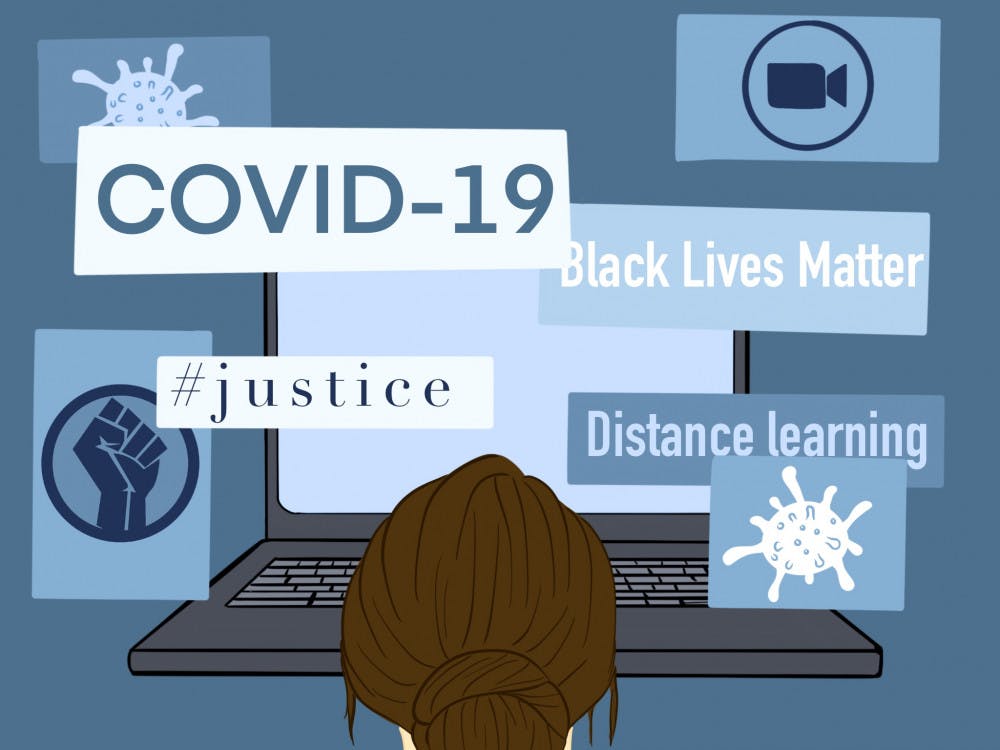Betty Smocovitis has prepared for 2020 for more than 25 years.
The UF biology and history professor’s class, the history and evolution of infectious disease, has taken on a new purpose — even if it’s one she didn’t envision this year.
“It’s one things to be talking about wars and monarchs who’ve died, talking about the Black Death,” Smocovitis said. “It’s another thing to be looking at your president not doing what they’re supposed to be doing.”
It’s a relevancy UF professors realized these last three semesters as they adjust their curriculum to the major events of 2020 — the COVID-19 pandemic, the nationwide protests against racial injustice and a presidential election.
That’s given some UF history professors new ways to uphold their central mantra: using the past to understand the present. For some, that included comparisons, research and tracking COVID-19 throughout Africa.
For Smocovitis, that started in the Spring. She monitored COVID-19 from the first outbreak last January in Wuhan, China. Though the World Health Organization only declared the virus a global pandemic on March 11, Smocovitis knew it would be one.
She made her biology students in the Spring track the virus’ path and observe its transmission rates — all while tackling genomes and double helixes.
This Fall, with a greater understanding of COVID-19, Smocovitis has students write weekly two-page reaction papers documenting the current state of the pandemic. She found her students more invested in the topic as it dominates their reality.
“They began to see things like the social fabric, tearing — how these pathogens can affect everybody,” Smocovitis said. “But our ability to withstand them, to function from them is a testament to our abilities.”
Assistant UF professor Fernanda Bretones Lane sought to tackle those questions in her course introduction to Caribbean history, which examines the region from the pre-Columbian era to the present day.
She dedicated two of the 16-weeks to pandemics along with COVID-19’s effects on tourism, one of the region’s biggest financial drivers.
“What does it mean that we can and cannot go to certain places? What does it mean for the people that live there as we now become a threat?” she said. “It was hard for me not to incorporate them into my class.”
That’s become the motto for many professors, especially when timely issues like systemic racism and global health converge.
Megan Cogburn, a UF anthropology doctoral candidate and instructor of global health culture, has her students write weekly journal entries on how the course material relates to their own lives in a pandemic.
“I think one thing that I felt was a sense of solidarity and community with the students. This was a process for all of us,” Cogburn said. “It’s a privileged position to be an instructor like this, but it’s also a humbling one.”
That led her to dedicate a week of her course, which is only in its second catalogued semester, to race and medicine, noting how minorities are disproportionately affected by COVID-19.
“We want them to be applicable to students’ lives and students' events, but how applicable it was was hard for all of us,” Cogburn said.
Nancy Hunt, a history and African studies professor, took that a step further.
Hunt has been teaching her course, health in Africa, for decades at different schools before arriving at UF in 2016. But when COVID-19 hit, she reconfigured her class to focus on the spread of the virus across Africa.
Every class, she splits her 15 history and biology students into small groups, with each person responsible for explaining the effects COVID-19 has on two African countries.
This introduces them to countries that have been underrepresented in COVID-19 media coverage and allows them to understand how race — and racism — tie in to a nation’s response, Hunt said.
“If you do African history, you’re looking at the history of racism,” Hunt said. “History should always be taught in relation to the present to help people connect with it.”
She prefers to keep the course small, giving every student the chance to develop more intimate connections — even if Zoom is the medium.
“The conversations, they’re just beginning, but they’re going to get intense based off the approaches they take,” Hunt said. “It’s the spectrum of science to the humanities and the arts. Everyone has to do a bit of that.”






